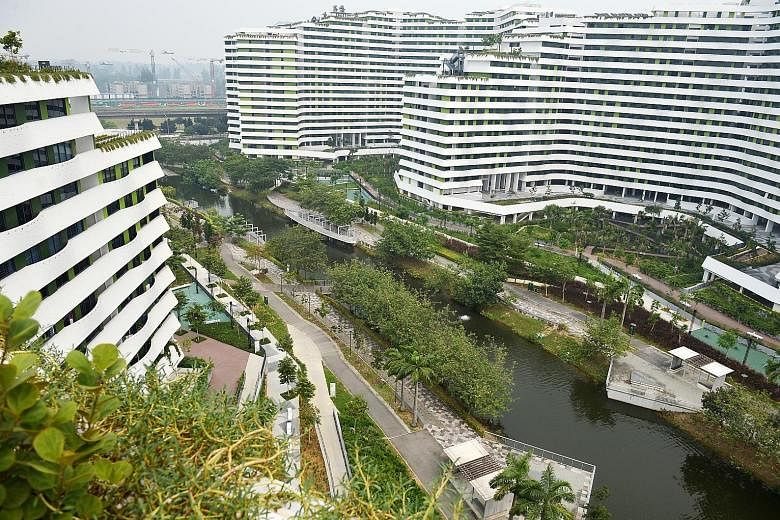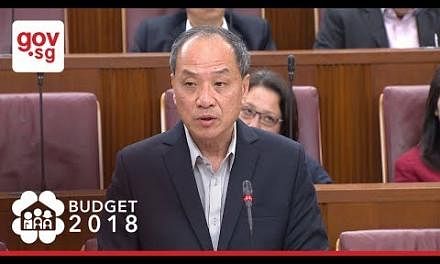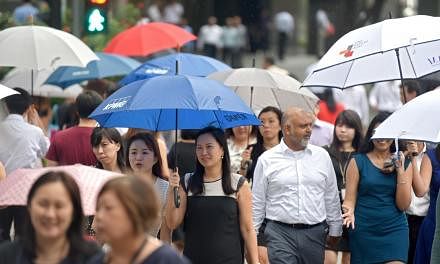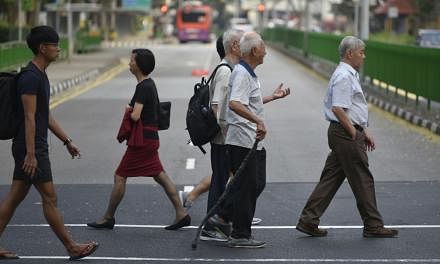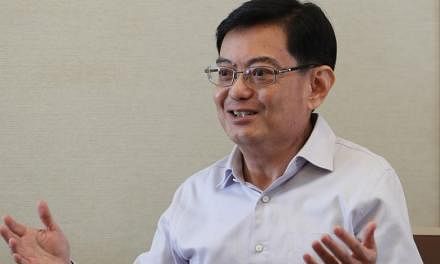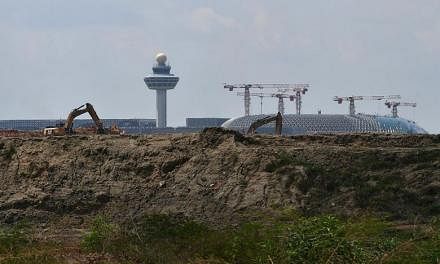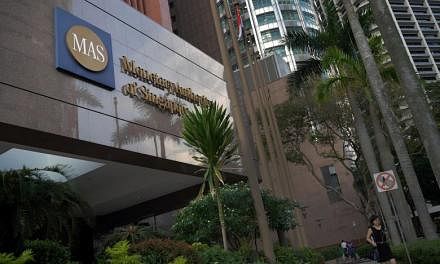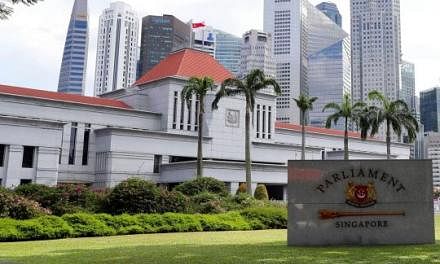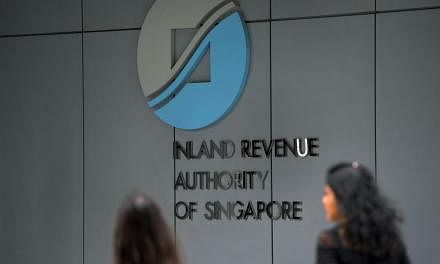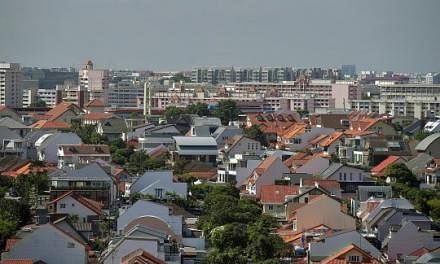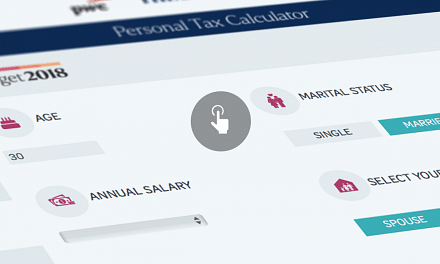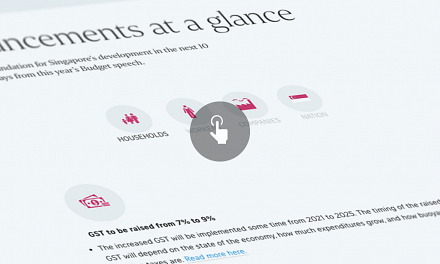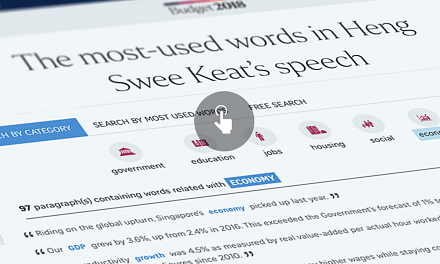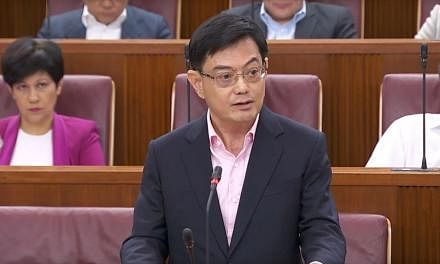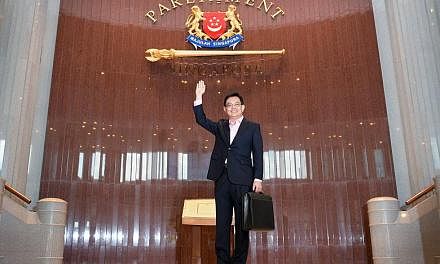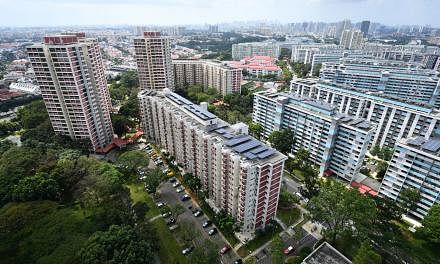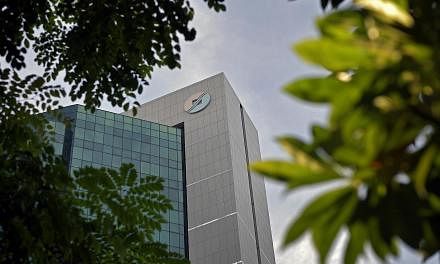The Government is considering providing guarantees for long-term borrowings made by statutory boards and government-owned companies to build critical national infrastructure.
This will help lower financing costs while ensuring Singapore does not draw directly on its reserves to fund major spending, Finance Minister Heng Swee Keat said.
Statutory boards and government-owned companies are already using bonds to finance infrastructure projects. For example, statutory boards like the Housing Board, Land Transport Authority and PUB have issued bonds to finance public housing, rail and water infrastructure.
This spreads the cost of major investments over more years and helps boost Singapore's bond market, Mr Heng said.
Where possible, the Government will save ahead to prepare for infrastructure investments.
The Changi Airport Development Fund, set up in 2015, now has $4 billion.
Mr Heng said a Rail Infrastructure Fund will be set up to save for major rail lines, starting with an injection of $5 billion in the 2018 financial year. This can be topped up when the fiscal position allows.
-
AT A GLANCE
-
• Ministries' budgets will be allowed to grow at 0.3 times the rate of gross domestic product growth, down from the current rate of 0.4 times. The move to encourage disciplined spending will start on April 1 next year.
• A new Rail Infrastructure Fund, with an initial $5 billion, will be set up to save for future major rail lines.
• The Government is mulling over giving guarantees for some long-term loans for building critical national infrastructure.
• Statutory boards and government-owned companies may be able to borrow funds for their key infrastructure projects, such as Changi's Terminal 5 and the Kuala Lumpur-Singapore High Speed Rail.
The Government is also looking at borrowing by statutory boards and government-owned companies that build infrastructure.
For example, the National Environment Agency will consider borrowing to finance the upcoming Integrated Waste Management Facility. The LTA may borrow for the Kuala Lumpur-Singapore High Speed Rail and the Johor Baru-Singapore Rapid Transit System Link. The Changi Airport Group will also weigh up borrowing for Terminal 5.
"These infrastructure projects, once completed, will generate economic returns over many years. The borrowing arrangements for these projects will hence help distribute the share of funding more equitably across generations," Mr Heng said.
To lower financing costs, the Government will also consider providing guarantees for some of these long-term borrowings. A government guarantee will enhance the confidence of creditors, he noted.
In addition, a guarantee "is another way to use the strength of our reserves to back our infrastructure projects, without directly drawing on the reserves. The reserves can then remain invested to generate returns".
He said the Government is studying this carefully and is in discussions with the President and the Council of Presidential Advisers.
This would not be the first time the Government would guarantee debt used to finance infrastructure projects. It guarantees debt instruments issued by Clifford Capital, a project financing firm funded by Temasek and other financial institutions, whose mandate is to promote the role of Singapore-based companies in infrastructure projects, both within the country and abroad.
But the Government itself does not borrow to fund its expenditures. Instead, securities are issued for reasons unrelated to the Government's fiscal needs.
One type of debt regularly issued is Singapore Government Securities, which are used to develop the domestic debt market. The other is the Special Singapore Government Securities, bonds issued to the Central Provident Fund (CPF). The bonds issued in this case are to pay the CPF interest rates that CPF members get on their savings.
The Finance Ministry says on its website: "All borrowing proceeds are therefore invested. The investment returns are more than sufficient to cover the debt servicing costs."
Under the Constitution, the Government cannot spend the monies raised from both sets of securities.
CIMB Private Bank economist Song Seng Wun said such a move would give financial institutions - like insurance firms - more options to match their long-term Singdollar liabilities with Singdollar assets.
This will help deepen Singapore's capital markets, he noted.
UOB economist Francis Tan said the Government's triple-A credit rating will stand it in good stead. "At this stage of our development, we should use our credit ratings to tap the capital markets, to reduce the reliance on the reserves and yearly Budget revenues."
